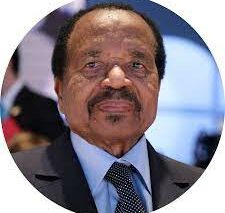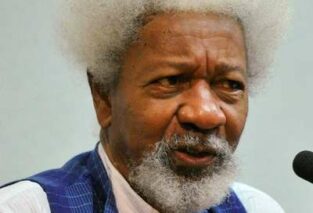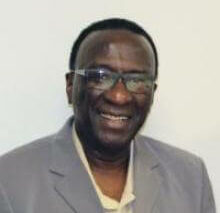I re-visit the following interview which I conducted in the late 90s with Sierra Leonean-born Professor Michael Abioseh Porter of Drexel University in Philadelphia in which he talks about the role the North American-based African Literature Association (ALA), and its literary product, the ALA Bulletin, have played in promoting African literatures, notably Cameroonian literatures. At the time of this interview, Professor Porter was the Editor-in-Chief of the ALA Bulletin. His association has also been noted for its outspoken defence of human rights in Africa, wherever such rights are trampled upon. For example, it loudly denounced the Abacha dictatorship in Nigeria when it murdered the human rights activist and playwright Ken Saro Wiwa in 1995.
Professor Porter, as a Cameroonian, I am keen to know what role non-Cameroonian critics, like you, have played in promoting Cameroonian literatures?
Your country has a way of pulling people to itself, especially scholars of African literatures; and this goes to bolster the point I’ve been making of the important role the Department of Comparative African Literatures under Professor Bernard Nsokika Fonlon played, once upon a time. The impact of non-Cameroonians, as compared to Cameroonians, on your country’s literatures is, understandably small, but some good scholars have been out there to contribute their share of knowledge to the Department of Comparative African Literatures’ impact on literary development in your country. I can think of Ken Harrow, the late Richard Bjornson, who was also the Editor of the Journal of African Literatures, Douglas Killam, Aliko Songolo, Stephen Arnold, and a host of others whose names don’t come to mind readily. What is most encouraging, however, is that you now have a cadre of Cameroonian scholars, all of a younger breed, led by Ambroise Kom, who are doing a marvelous job in the area of literary criticism.
What do you think accounts for this outcrop of good literary critics, on the one hand, and what some see as a vacuum in literary creativity, on the other hand?
There has really never been a shortage of literary creativity in Cameroon, as such. There has, of course, been the older crop of writers such as Mongo Beti, Ferdinand Oyono, the late Kenjo Jumbam (author of The White Man of God), Francis Bebey, Rene Philombe, among others. Then there is an equally impressive array of younger writers, such as Calixte Beyella, Bate Besong, Bole Butake, and others.
However, one of the problems we face throughout Africa when it comes to literary production is an absence of publishing and distribution facilities. Anglophone African writers published their works with Heinemann, Three Continents Press and others that have, unfortunately, faded out. The news is not all bad, though. There is a Ghanaian publisher Ayebia Clarke, who used to be an editor at Heinemann, who will soon launch his own publishing house in Oxford, England. One of our worries is that unless Africa, and those who wish Africa well, come up with publishing houses in the immediate future, the next generation of young writers from Africa will hardly be known.
You were the Editor of the African Literature Association (ALA) Bulletin that has, for the past over twenty years, been very instrumental in promoting African literatures and African writers. Who can be a member of the African Literature Association?
The African Literature Association (ALA) was formed in 1975 and, over forty years later, I’m happy to say that it has become a more dynamic and vibrant organization. Its main goal is to promote the literatures of Africa to all peoples, regardless of race or gender, and to welcome members who wish to join our association, irrespective of race, colour, origin or nationality. We are a very “catholic” – in the sense of “all embracing” – organisation.
The ALA is basically a North American-based organisation. How present are Africans living in Africa in it?
Our membership currently stands at about five to six hundred members with about a hundred and fifty members residing and working in Africa. I know this because I have the addresses of every member since I send the ALA Bulletin out to every member. I should also call your attention to a decision the ALA Executive took some years ago to send our sister journal, Research in African Literatures (RAL), for free to any African university library that requests for it. When you think that university libraries usually pay over a hundred and fifty US dollars as annual subscription to this journal, the ALA offer of such subscription free of charge to African university libraries is quite a bonus, and is meant to reflect our desire to open African universities to the various contributions scholars are making to promote African literatures.
How widely disseminated is this information and what has been the response of African university libraries to your offer so far?
Many African university libraries have been taking advantage of this offer and occasionally we receive beautiful letters of acknowledgement and thanks from some of them. Such letters have not always been letters of gratitude, though. There was an ugly episode some years ago when a librarian of an African university wrote to ask us not to send the journal to them anymore because he felt that it was too critical of some of the actions of his government. Mercifully, others are more receptive than that.
That’s not surprising, though, as the ALA sometimes takes very strong, if not confrontational, stands on issues, especially those relating to human rights in Africa, leaving many people wondering whether it is really as apolitical as it claims to be!
The ALA views itself as a highly academic organisation but we also know that academics thrive in a socio-cultural and political context. That is why the ALA views the complete liberation of Africa in act, word and deed, as one of its primary goals. We have never been silent or have never hesitated to condemn the violation of human rights wherever and whenever such violations occur in Africa. Although our primary goal has always been to produce and disseminate literature, we’ve gone beyond those parameters, as needs be, to defend the inviolability of human rights throughout Africa.



